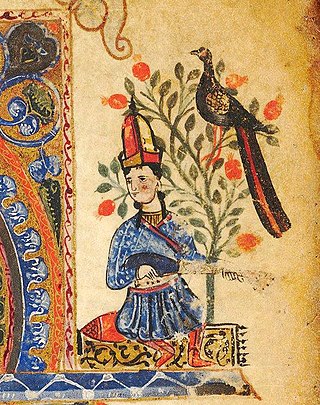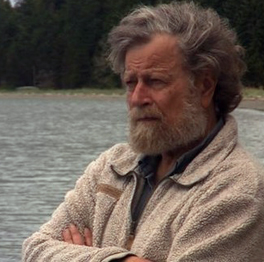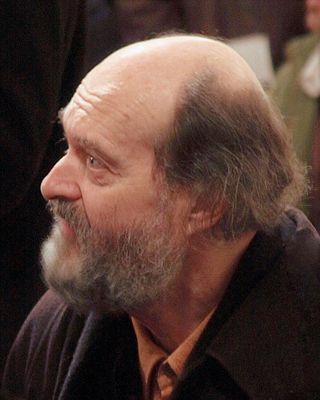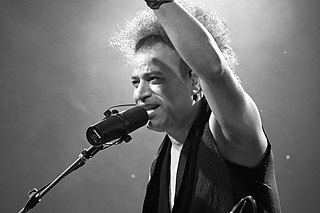
Musical composition can refer to an original piece or work of music, either vocal or instrumental, the structure of a musical piece or to the process of creating or writing a new piece of music. People who create new compositions are called composers. Composers of primarily songs are usually called songwriters; with songs, the person who writes lyrics for a song is the lyricist. In many cultures, including Western classical music, the act of composing typically includes the creation of music notation, such as a sheet music "score", which is then performed by the composer or by other musicians. In popular music and traditional music, songwriting may involve the creation of a basic outline of the song, called the lead sheet, which sets out the melody, lyrics and chord progression. In classical music, orchestration is typically done by the composer, but in musical theatre and in pop music, songwriters may hire an arranger to do the orchestration. In some cases, a pop or traditional songwriter may not use written notation at all and instead compose the song in their mind and then play, sing or record it from memory. In jazz and popular music, notable sound recordings by influential performers are given the weight that written or printed scores play in classical music.

The music of Afghanistan comprises many varieties of classical music, folk music, and modern popular music. Afghanistan has a rich musical heritage and features a mix of Persian melodies, Indian compositional principles, and sounds from ethnic groups such as the Pashtuns, Tajiks and Hazaras. Instruments used range from Indian tablas to long-necked lutes. Afghanistan's classical music is closely related to Hindustani classical music while sourcing much of its lyrics directly from classical Persian poetry such as Mawlana Balkhi (Rumi) and the Iranian tradition indigenous to central Asia. Lyrics throughout most of Afghanistan are typically in Dari (Persian) and Pashto. The multi-ethnic city of Kabul has long been the regional cultural capital, but outsiders have tended to focus on the city of Herat, which is home to traditions more closely related to Iranian music than in the rest of the country.

The music of Armenia has its origins in the Armenian highlands, dating back to the 3rd millennium BCE, and is a long-standing musical tradition that encompasses diverse secular and religious, or sacred, music. Folk music was notably collected and transcribed by Komitas Vardapet, a prominent composer and musicologist, in the late 19th and early 20th centuries, who is also considered the founder of the modern Armenian national school of music. Armenian music has been presented internationally by numerous artists, such as composers Aram Khachaturian, Alexander Arutiunian, Arno Babajanian, Haig Gudenian, and Karen Kavaleryan as well as by traditional performers such as duduk player Djivan Gasparyan.
The music of Iran encompasses music produced by Iranian artists. In addition to the traditional folk and classical genres, it also includes pop and internationally celebrated styles such as jazz, rock, and hip hop.
Persian traditional music or Iranian traditional music, also known as Persian classical music or Iranian classical music, refers to the classical music of Iran. It consists of characteristics developed through the country's classical, medieval, and contemporary eras. It also influenced areas and regions that are considered part of Greater Iran.

Morten Johannes Lauridsen III is an American composer and teacher. A National Medal of Arts recipient (2007), he was composer-in-residence of the Los Angeles Master Chorale from 1994 to 2001, and is professor emeritus of composition at the USC Thornton School of Music, where he taught for fifty-two years until his retirement in 2019.

Kayhan Kalhor is a Kurdish kamancheh and setar player, and a vocal composer from Iran. He has received three Grammy Award for Best Traditional World Music Album nominations. Kalhor also has earned two nominations and won one Grammy Award for Best Global Music Album as a member of the Silk Road Ensemble.
Celtic fusion is an umbrella term for any modern music which incorporates influences considered "Celtic", or Celtic music which incorporates modern music. It is a syncretic musical tradition which borrows freely from the perceived "Celtic" musical traditions of all the Celtic nations, as well as from all styles of popular music, it is thus sometimes associated with the Pan-Celtic movement. Celtic fusion may or may not include authentic traditional music from any one tradition under the Celtic umbrella, but its common characteristic is the inspiration by Celtic identity.
daKAH or daKAH hip hop orchestra is an orchestra co-founded by Los Angeles composer and the orchestra's conductor Geoff Gallegos with a diverse group of 23 musicians in 1999.

Mervyn Edwin Warren is an American film composer, record producer, conductor, arranger, lyricist, songwriter, pianist, and vocalist. Warren is a five-time Grammy Award winner and a 10-time Grammy Award nominee. Warren has written the underscore and songs for many feature and television films. He has also written arrangements in a variety of musical styles for producers Quincy Jones, David Foster, Arif Mardin, and dozens of popular recording artists, including extensive work on Jones' Back on the Block,Q's Jook Joint, and Q: Soul Bossa Nostra.

Shashank Subramanyam is a Grammy-nominated exponent of the Bamboo Flute from India and specialises in Indian Classical Music. He is a recipient of the Chevalier de l'Ordre des Arts et des Lettres (Knighthood) by Govt of France 2022 and the Sangeet Natak Akademi's senior award by Govt. of India bestowed by the Hon. President of India for the year 2017 at an investiture ceremony held at Rashtrapathi Bhavan in New Delhi.
Pirayeh Pourafar (Born) is an Iranian musician, tar player, and expert on Persian music. Pourafar learned the radif as a student of Grand Master Ali Akbar Shahnazi at the Royal National Music Conservatory of Tehran. She has directed two successful Persian music ensembles, Nava Ensemble and Lian Ensemble.
Southwest Chamber Music is a chamber music ensemble based in Los Angeles County, California. The organization was founded in 1987 by the artistic director Jeff von der Schmidt and the executive director Jan Karlin. One of the most active chamber music ensembles in the United States, the ensemble performs year round, provides educational programs, tours internationally, and has recorded 30 compact discs.

Hafez Nazeri is a Kurdish Iranian singer and composer. He is the son of Kurdish Iranian musician Shahram Nazeri.

Symphony No. 4 Los Angeles is the fourth symphony by Estonian composer Arvo Pärt. It is the first of his symphonies to be written post-1976 and is in his signature tintinnabuli style. It is the first of his pieces that focuses on larger scale, instrumental tintinnabulation. Previous pieces, such as Summa and Für Alina, were typically written for SATB choir or a smaller number of instruments. Composed in 2008, and premiered 10 January 2009, Symphony No. 4 was nominated for a 2010 Grammy Award for Best Classical Contemporary Composition, although he did not receive the award.
Yuval Ron is a world music artist, composer, educator, peace activist, and record producer.
Paul Livingstone is an American sitarist, composer and multi-instrumentalist. He is one of the few American disciples of Pandit Ravi Shankar, also trained under Rajeev Taranath and Amiya Dasgupta all of the Senia Maihar Gharana.
The Yuval Ron Ensemble is a musical group that focuses on traditional sacred Middle Eastern repertoire. The group’s stated mission is to “alleviate national, racial, religious and cultural divides by uniting the music and dance of the people of the Middle East into a unique mystical, spiritual and inspiring musical celebration.”

e
Rastak Music Group is an Iranian contemporary folk music ensemble that was formed as an experimental music group in 1997. Rastak seeks to collect, record and interpret Iranian, Kurdish, Baloch and Turkmen folk music among others for a global audience.